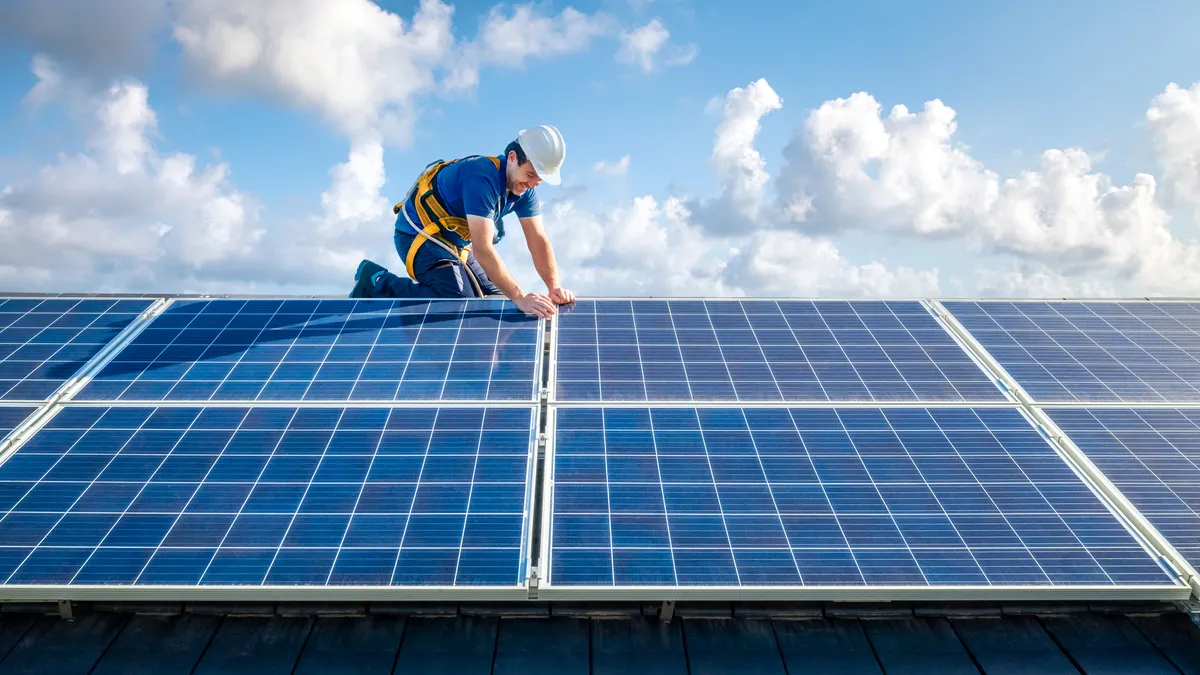Dive Brief:
-
Silicon Valley Bank closed its first renewables deal since it was shut two months ago, financing a $203 million deal Tuesday with Pivot Energy for a 100-MW multi-state portfolio of solar projects.
-
SVB, which was acquired in March by First Citizens Bank, pioneered financing mechanisms for community solar projects that would otherwise struggle to attract investors because of their relatively small size. The bank’s failure raised questions about the possibility of project delays for companies with ties to the bank.
-
In spite of recent financial turmoil, the project partners closed the deal just six weeks later than planned. SVB remains committed to financing renewable energy projects and advancing the energy transition, according to Bret Turner, managing director for SVB’s climate technology and sustainability practice.
Dive Insight:
Pivot Energy was set to close a financing package for 35 solar projects in March when the lead financier, SVB, abruptly collapsed.
“It happened so quickly,” Pivot Energy CFO Bret Labadie said. “One day everything was fine, and two days later they were literally taken over by the [Federal Deposit Insurance Corp.]”
SVB collapsed March 10 following a bank run and a capital crisis after it disclosed it took a $1.8 billion hit from a $21 billion sale of its bond holdings. The bank faced a cash crunch due to surging interest rates and cuts in the tech sector that led many customers to pare their deposits.
At the time, Pivot Energy was looking to pull together construction financing, equity bridge loans and term loans for its latest package of solar projects — a mix of community solar, commercial and industrial projects with an average size of 3 MW each. Negotiations with SVB had already begun, and Labadie said the bank’s sudden failure raised questions about how long it would take Pivot Energy to secure financing for projects that are expected to be operational by mid-2024.
“Because we were so far on this particular deal — and these take months to get there — we would have had to start over to a large extent,” he said. “We’re very fortunate right now that demand from lenders is growing and continues to grow, so there are plenty of ways to finance these things. It just would have taken quite a bit longer.”
Pivot Energy wasn’t the only community solar sponsor to find itself in such a position. Some of SVB’s own estimates have suggested the bank had a hand in 62% of community solar projects. Its outsized impact on community solar, Labadie said, prompted serious concern about the closure’s impact on the sector.
Community solar, which typically comes in at 5 MW per project or less, is well situated to attract investors thanks to new incentives from the Inflation Reduction Act. But historically, finding capital for this smaller, less proven asset class was challenging, Labadie said. Pivot Energy preferred to remain loyal to SVB, which had used its experience backing residential rooftop installers like SolarCity and Sunrun in their early days to pioneer innovative financial solutions for community solar developers.
Fortunately, Labadie said, Pivot Energy met with the finance team the week following the FDIC seizure of SVB. Everyone remained committed to moving forward, Labadie said.
Inside SVB, staying focused on helping clients move their projects forward maintained a sense of calm during the transition, Turner said. It wasn’t just about finance, he said; his team remains optimistic about renewable energy and its ability to have a positive impact on the future.
Two weeks after the bank failure, First Citizens Bank bought SVB and gave the project, with all the terms in place before the bank’s closure and acquisition, a green light.
“To pull this across the finish line — SVB didn’t go away. They are here to stay,” Labadie said.














